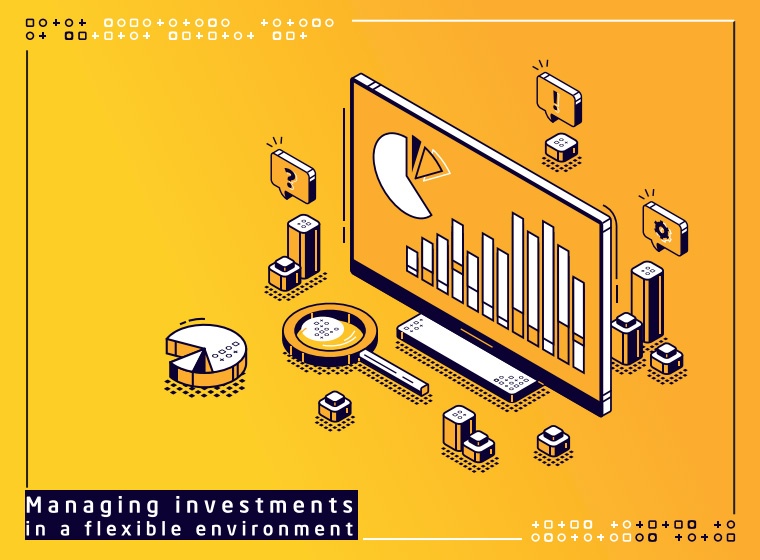Ensuring optimal funding efficiency in flexible context
Generally, pump-out money volume hovers at around 15-16 per cent of the GDP on the global scale, which is a never-before-seen record. This would lead to demand-pull inflation not only in the short term as seen in some previous forecasts but also in the long term.
Secondly, the Russia-Ukraine conflict and supply chain disruptions have led to cost-push inflation. These two aspects have directly affected Vietnam’s development. As Vietnam mostly imports to serve export, the impact of the rising import price index on products in the domestic market is deemed minimal.
In addition, as the country is self-controlled in food sources, the price of food and foodstuffs has been fairly stable, instrumental to low-level cost-push inflation. The most decisive factor is that Vietnam controlling the money supply and exchange rate.
 |
However, the inflation rate in Vietnam in 2022 is expected to be double that in 2021 (about 4 per cent against 1.98 per cent), with intensifying pressure in the rest of 2022 due to a strong rebound in consumption and investment during the period.
Besides inflation factors, Vietnam’s economy has also incurred other pressures, such as depressed investment channels like those associated with corporate bonds and stocks which bear high pressures from inflation and vulnerabilities in the global political and economic situation. In this context, it is important to diversify one’s investment portfolio following the economic cycle.
For instance, with a growing economy, one should invest in the sectors setting growth trends such as processing and manufacturing industries, services, and construction. With a declining economy, investment should be directed to neutral and essential sectors like healthcare, food and foodstuffs, or banking.
Further, one’s capital sources should be directed to diverse investment channels, including savings accounts, securities, buying long-term stakes, or buying gold, each accounting for 10-20 per cent of total capital volume.
Real estate investment is only dedicated to heavy-pocket investors and in the condition of normal property prices.
In normal conditions and with a limited budget, one might start with apartment investment by securing a bank loan with deferred payment to buy and lease out the apartment.
After five years, one might pay out the loan, buy another apartment also through borrowing with deferred payment, and then sell the apartments to shift into buying a terraced house or a villa with higher added value.
Investment into the corporate bond market is risk-prone as most bond issuers do not have a credit rating, making it extremely hard to know their financial standing.
Currently, the rate of corporate bonds reaching the public officially is rather low, making the market quite risky. Luckily, the corporate bond market has resumed to some extent recently, yet investors still have low trust in this kind of product, making rebound prospects shaky.
The government needs to work out measures to fast-track corporate bond issuance to the public, maybe through pushing up the credit rating process or simplifying legal procedures to shorten approval time.
In all contingencies, credit ratings are deemed essential to both public bond issuance and private placement. In the corporate bond market, even in the credit market, credit ratings are the way professional rating agencies measure the financial health of businesses instead of investors. That international practice has existed for several hundred years and Vietnam needs to learn from that and apply it.
*Le Xuan Nghia, Senior economist
What the stars mean:
★ Poor ★ ★ Promising ★★★ Good ★★★★ Very good ★★★★★ Exceptional
Related Contents
Latest News
More News
- Private capital funds as cornerstone of IFC plans (February 20, 2026 | 14:38)
- Priorities for building credibility and momentum within Vietnamese IFCs (February 20, 2026 | 14:29)
- How Hong Kong can bridge critical financial centre gaps (February 20, 2026 | 14:22)
- All global experiences useful for Vietnam’s international financial hub (February 20, 2026 | 14:16)
- Raised ties reaffirm strategic trust (February 20, 2026 | 14:06)
- Sustained growth can translate into income gains (February 19, 2026 | 18:55)
- The vision to maintain a stable monetary policy (February 19, 2026 | 08:50)
- Banking sector faces data governance hurdles in AI transition (February 19, 2026 | 08:00)
- AI leading to shift in banking roles (February 18, 2026 | 19:54)
- Digital banking enters season of transformation (February 16, 2026 | 09:00)

 Tag:
Tag:



















 Mobile Version
Mobile Version